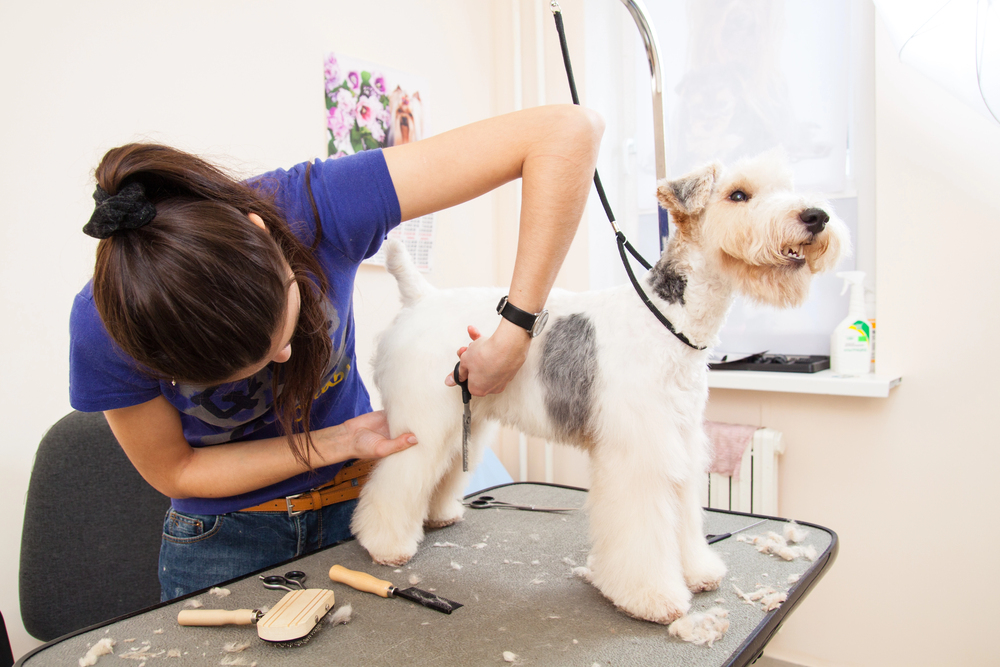
Expert Tips and Resources to Ensure a Safe and Ethical Adoption Process
Read Time: 5 minutes
Central Florida has seen a surge in pet-related scams, reflecting a nationwide trend fueled by the COVID-19 pandemic, which increased the demand for pets and shifted many transactions online. Scammers exploit this by creating fake listings for pets, impersonating lost pet finders, or running fraudulent pet-related services. These schemes not only cause financial harm but also impact local animal shelters and legitimate pet businesses, making it harder for them to operate effectively.
Common Pet Scams To Be Award Of
Pet scams tend to seek one of two things from the victim: personal information or money. And usually, scams that steal personal information ultimately are trying to steal money as well. The following are some pet scams you should be aware of:
Fake Pet Sales
One of the most common scams targeting pet owners in Central Florida is fake pet sales. Scammers post adorable photos of puppies, kittens, or exotic pets on social media, online marketplaces, or classified ad websites at surprisingly low prices to attract potential buyers. Once the buyer expresses interest, the scammer requests upfront payment through wire transfers, gift cards, or peer-to-peer apps such as Zelle or Venmo. Unfortunately, the promised pet never arrives in many cases, or the buyer receives a sick or completely different animal than what was advertised. Pet owners eager to welcome a new furry friend may find themselves victims of this growing scam.
Identify Fake Pet Sales
To avoid pet scammers, be aware of common red flags. A major warning sign is a purebred puppy offered at a fraction of its usual price, as scammers use low prices to lure victims. Be suspicious if a seller won’t meet in person or show the pet’s living conditions. Be cautious if asked to pay via wire transfer, prepaid gift cards, or Zelle. Pressure to act “immediately” is a tactic often used by scammers to bypass doubts. As fake documents are common, always verify the legitimacy of any vaccinations, microchips, or breeder certifications.
Lost Pet Scams
Losing a pet is a traumatic experience, and scammers are exploiting this vulnerability. In lost pet scams, fraudsters scour social media and lost pet databases, then contact pet owners claiming to have found their missing pet. They may demand a reward or transportation fee before returning the pet. In reality, they never had the pet and will disappear once the payment is made.

Protect Yourself From Lost Pet Scams
You can protect yourself from lost pet scams by taking a few simple actions. Always verify the person’s identity and request clear, recent photos or videos of your pet. Avoid paying upfront for rewards or transportation fees, as genuine finders typically don’t demand payment before returning a pet. Propose meeting in a secure, public place like your veterinarian’s office to ensure authenticity. By following these precautions, you can protect yourself during the stressful process of recovering a lost pet.

Pet Owner Phishing Scams
Phishing scams involve fraudulent emails, text messages, or social media posts designed to steal personal information or money. Pet owners might receive emails claiming to be from local shelters, pet stores, or veterinary clinics, offering discounts, urgent pet care alerts, or adoption opportunities. These emails often contain links to fake websites that collect personal details or install malware on the victim’s device. Scammers sometimes even pose as charities seeking donations for animal rescue operations.
Avoid Phishing Scams
To avoid falling victim to phishing scams targeting pet owners, stay cautious about suspicious communications. Verify the sender’s email or phone number before responding to unsolicited messages. Avoid clicking on links or downloading attachments from unknown sources. Watch for warning signs like spelling errors, urgent requests for personal or financial information, or offers that seem too good to be true. Scammers use these tactics to trick pet owners into revealing sensitive information.
Fraudulent Pet Services
Another growing concern is fraudulent pet services, such as fake pet sitters, groomers, or trainers. Scammers create fake profiles on pet service platforms or social media, offering their services at discounted rates. Once hired, they either provide subpar care or disappear after receiving payment. These scams result in financial loss and can endanger the well-being of pets left in the care of unqualified individuals.

Safeguard Against Fraudulent Services
To avoid falling victim to fraudulent pet service scams, it’s important to research potential providers thoroughly. Check for online reviews, references, and professional certifications to ensure the service is reputable. Legitimate pet care providers will also offer contracts outlining their services and fees, providing transparency and protection for both parties. Additionally, before committing to any services, arrange an in-person meeting to evaluate how the provider interacts with your pet. This lets you gauge their professionalism and ensure they fit your pet’s needs.
The Impact on Central Florida’s Pet Community
The rise of pet scams is not only affecting individual pet owners but also putting significant strain on local shelters, rescue organizations, and veterinary clinics. Fraudulent claims, false reports, and financial scams divert critical resources away from legitimate operations, making it more difficult for these organizations to serve the community effectively. Scam victims often turn to shelters and clinics for help, further stretching their already limited resources. This growing issue underscores the need for increased community awareness and collective action to combat pet scams, ensuring that local organizations can continue their important work of rescuing and caring for animals in need.
Tips for Staying Safe
To protect yourself and your pets from scams, consider the following tips:
#1
Adopt From Reputable Sources
When adopting a pet, choosing reputable sources is vital to ensure the safety and well-being of the animal and yourself. Opt for established shelters, licensed breeders, or rescue organizations with good track records. Adopting locally supports your community and reduces the risk of scams common in online pet listings.
#2
Verify All Documents
When adopting a pet or purchasing from a breeder, verifying all documentation is essential to avoid scams. Always double-check health records, vaccination certificates, and other paperwork with an authorized veterinarian or local governing body to ensure authenticity.
#3
Check for Consistent Communication
Legit breeders or rescues will engage with you and answer your questions honestly. Scammers often evade detailed inquiries or provide vague responses.
#4
Use Safe Payment Methods
Never use cash, wire transfers, or gift cards for transactions. Payments made with credit cards or platforms like PayPal often provide buyer protection, which could help you recover your money in case of fraud.
#5
Be Cautious Online
When using online sources, exercise caution to protect yourself from scams. Avoid sharing personal information or detailed descriptions of your pet publicly, as scammers can use this information to exploit you. Additionally, be wary of potential phishing schemes disguised as legitimate offers or communications, and verify the authenticity of any website or contact before engaging.
Adopt With Caution and Confidence
As pet ownership grows in Central Florida, so does the need for vigilance against rising pet scams. By staying informed and taking proactive measures, pet owners can protect themselves and their furry companions from falling victim to these schemes. At Windermere Veterinary Services, we are committed to supporting the local pet community with trusted care, advice, and resources to ensure the health and happiness of your pets. Stay safe, stay informed, and remember that we’re here to help you navigate the challenges of pet ownership in Central Florida.
Worried About Your Pet’s Health?
Contact us now with any questions or to make an appointment. Our team at Windermere Veterinary Services is here to help!

